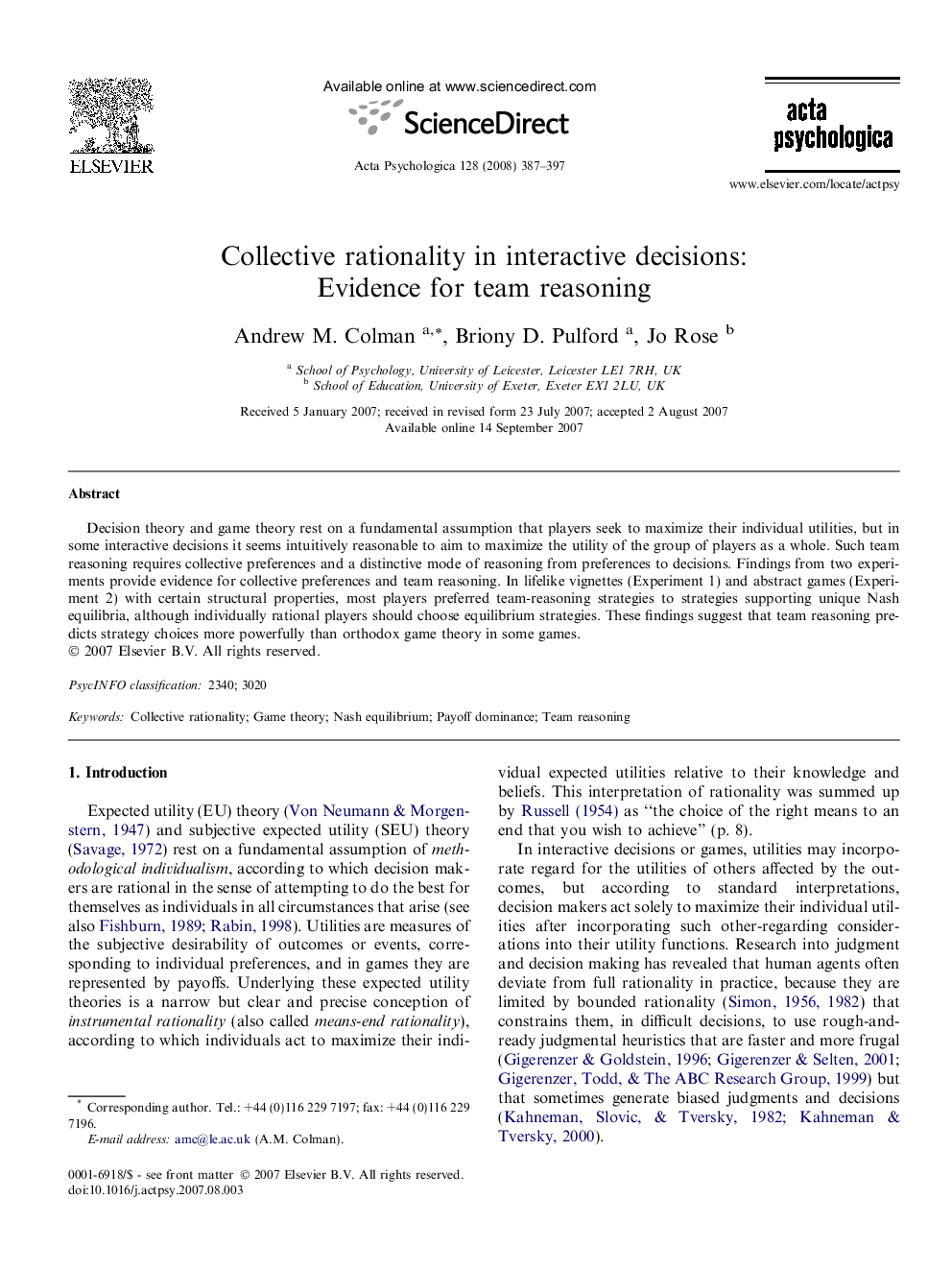| Article ID | Journal | Published Year | Pages | File Type |
|---|---|---|---|---|
| 920475 | Acta Psychologica | 2008 | 11 Pages |
Decision theory and game theory rest on a fundamental assumption that players seek to maximize their individual utilities, but in some interactive decisions it seems intuitively reasonable to aim to maximize the utility of the group of players as a whole. Such team reasoning requires collective preferences and a distinctive mode of reasoning from preferences to decisions. Findings from two experiments provide evidence for collective preferences and team reasoning. In lifelike vignettes (Experiment 1) and abstract games (Experiment 2) with certain structural properties, most players preferred team-reasoning strategies to strategies supporting unique Nash equilibria, although individually rational players should choose equilibrium strategies. These findings suggest that team reasoning predicts strategy choices more powerfully than orthodox game theory in some games.
